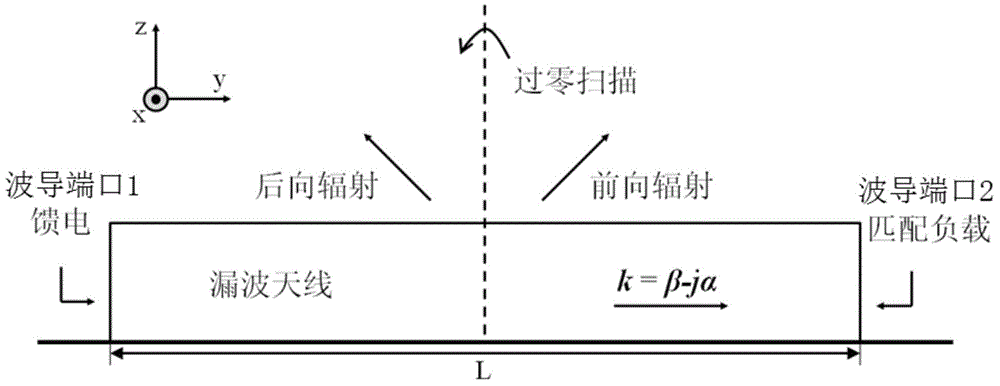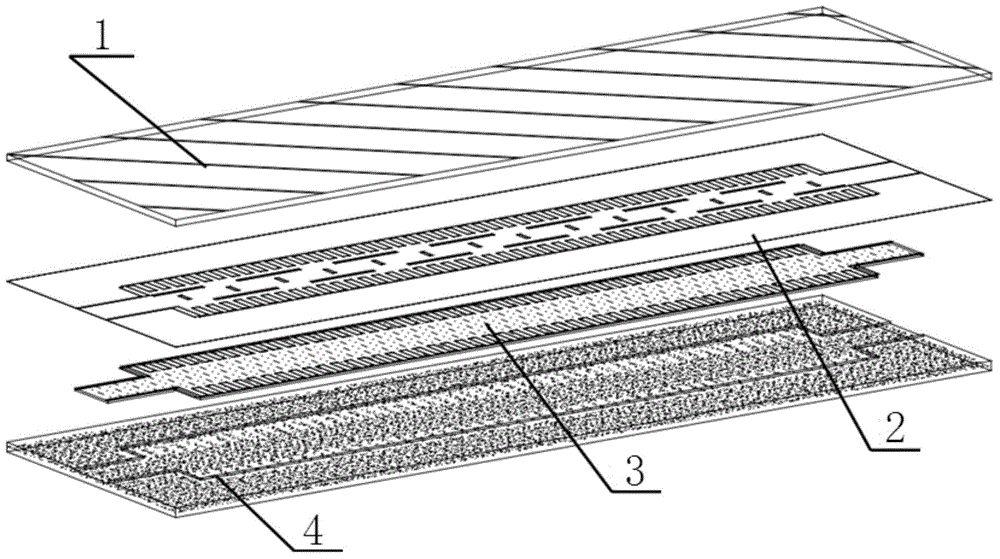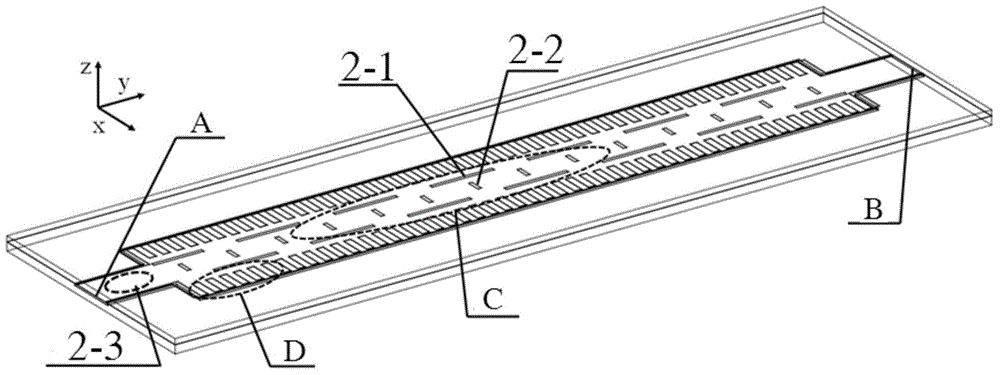Liquid crystal electrical control zero-crossing scanning leaky wave antenna based on comb-line waveguide
A leaky-wave antenna and comb-line technology, which is applied in the field of microwave antenna engineering, can solve problems such as difficult zero-crossing scanning and electronically controlled scanning leaky-wave antennas are difficult to work, and achieve the effects of large power capacity, low loss, and simple control mechanism
- Summary
- Abstract
- Description
- Claims
- Application Information
AI Technical Summary
Problems solved by technology
Method used
Image
Examples
specific Embodiment approach 1
[0030] Specific implementation mode one: the following combination Figure 2 to Figure 5 Describe this embodiment mode, the liquid crystal electronically controlled zero-crossing scanning leaky wave antenna based on the comb-shaped waveguide in this embodiment mode, which includes a top dielectric plate layer 1, a metal layer 2, a liquid crystal layer 3 and a bottom waveguide groove 4;
[0031] A metal layer 2 is arranged between the top dielectric plate layer 1 and the bottom waveguide groove 4, and the bottom waveguide groove 4 is a rectangular plate with a longitudinal groove structure on the upper surface;
[0032] The top dielectric plate layer 1 and the metal layer 2 are tightly integrated into one body through mechanical processing, electroplating, hot pressing or microelectronic technology;
[0033] The bottom waveguide groove 4 is a rectangular plate with a vertical groove structure on the upper surface, and the liquid crystal material is filled between the vertical g...
specific Embodiment approach 2
[0042] Specific implementation mode two: the following combination Figure 6 to Figure 13 This implementation mode is described, and the antenna structure of the first implementation mode is further described in this implementation mode in combination with specific examples.
[0043] As a special case, Image 6 with Figure 7 The specific design parameters of a liquid crystal waveguide transverse and longitudinal slot leaky wave electronically controlled scanning antenna working at 13.3GHz are given. Depend on Image 6 , the top dielectric plate of the antenna is a microwave substrate, and the relative permittivity ε r =4, loss tangent tanδ=0.004, thickness d 2 =1mm, the thickness of the metal layer is 0.017mm. The antenna consists of N=14 periodic slot units, the unit spacing p=7mm, and the conduction band length l c = 10.5 mm. The length of the longitudinal slit radiation unit is l 1 =10mm, the length of transverse seam l for matching 2 =1mm, distance between horizo...
PUM
 Login to View More
Login to View More Abstract
Description
Claims
Application Information
 Login to View More
Login to View More - R&D
- Intellectual Property
- Life Sciences
- Materials
- Tech Scout
- Unparalleled Data Quality
- Higher Quality Content
- 60% Fewer Hallucinations
Browse by: Latest US Patents, China's latest patents, Technical Efficacy Thesaurus, Application Domain, Technology Topic, Popular Technical Reports.
© 2025 PatSnap. All rights reserved.Legal|Privacy policy|Modern Slavery Act Transparency Statement|Sitemap|About US| Contact US: help@patsnap.com



